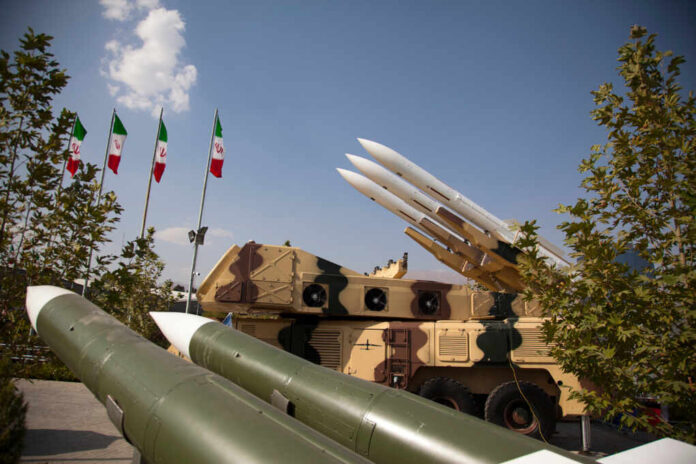
President Trump warns Iran to negotiate a nuclear deal quickly or face even more devastating Israeli attacks as the Middle East teeters on the brink of wider conflict.
At a Glance
- Israel has launched major strikes on Iranian nuclear sites, military bases, and killed top generals and scientists
- Trump urged Iran to “make a deal, before there is nothing left” following the devastating Israeli attacks
- Iran retaliated with over 100 drones toward Israel, which were intercepted, and a missile was launched from Yemen
- The IDF reported hitting over 100 targets with 200 fighter jets and plans to continue strikes for days
- Nuclear talks are scheduled in Oman despite heightened tensions and Iranian Supreme Leader promising “severe punishment”
Trump’s Warning Amid Escalating Conflict
President Donald Trump has issued a stark warning to Iran following massive Israeli strikes on its nuclear facilities and military installations. The warning comes as tensions in the Middle East reach dangerous levels, with Israel conducting what appears to be its most extensive military operation against Iran to date. Trump’s message emphasized the urgent need for Iran to return to nuclear negotiations while highlighting the superior military capabilities Israel possesses through American-supplied weaponry.
“There has already been great death and destruction, but there is still time to make this slaughter, with the next already planned attacks being even more brutal, come to an end,” Trump stated in his message to Iranian leadership. The president’s comments specifically mentioned that “the United States makes the best and most lethal military equipment anywhere in the World, BY FAR, and that Israel has a lot of it, with much more to come – And they know how to use it.”
🔴 Trump’s Confusing Iran Statement – What’s Going On?
In one breath, Trump says:
– “We’re close to a deal with Iran.”
– “I want to avoid a conflict.”
– “Talks are ongoing and peaceful.”
– “An Israeli strike is very likely.”
– “A strong and possible attack may happen.”
– “Iran… pic.twitter.com/Fnuf7foR1P— IntelSky (@Intel_Sky) June 12, 2025
Israel’s Massive Military Operation
Israeli Defense Forces have launched what military analysts describe as a precision operation targeting Iran’s nuclear infrastructure and military capabilities. According to reports, over 200 Israeli fighter jets participated in strikes against more than 100 targets across Iran, utilizing approximately 330 munitions. The attacks reportedly damaged nuclear facilities and killed several high-ranking Iranian military officials and nuclear scientists, dealing a significant blow to Iran’s defense and nuclear programs.
“Iran must make a deal, before there is nothing left, and save what was once known as the Iranian Empire. No more death, no more destruction, JUST DO IT, BEFORE IT IS TOO LATE.”, stated Trump.
Iranian leaders have responded with defiance to the Israeli attacks. Supreme Leader Ayatollah Ali Khamenei called the strikes a “crime” and promised that Israel “must expect severe punishment.” The Iranian military attempted to retaliate by launching over 100 drones toward Israeli territory, though Israeli officials claim their air defense systems successfully intercepted these threats. Additionally, a missile was launched from Yemen toward Jerusalem, triggering air raid sirens across the Israeli capital.
During the phone call last night, Israeli Prime Minister Benjamin Netanyahu urged U.S. President Trump to halt the ongoing nuclear negotiations with Iran and allow Israel to carry out military action against Iranian nuclear sites.
Trump declined, saying he would not approve…
— OSINTWarfare (@OSINTWarfare) June 10, 2025
Diplomatic Efforts Amid Military Escalation
Despite the dramatic escalation in military actions, diplomatic channels remain open. The United States and Iran are scheduled to hold another round of nuclear talks in Muscat, Oman, though these negotiations face significant hurdles given recent events. Secretary of State Marco Rubio has distanced the United States from Israel’s military actions, stating that America was not involved in the strikes while urging Iran not to retaliate against U.S. positions in the region.
The Israeli strikes have had immediate regional and global impacts. Air travel across Europe has been disrupted, with approximately 1,800 flights affected as airlines avoid Iranian airspace. Within Iran, protests have erupted in response to the attacks, while access to nuclear sites has been severely restricted, particularly for journalists. Global leaders have called for restraint from all parties, though reactions to Israel’s actions have been mixed among the international community.
Nuclear Deal Prospects
The future of the nuclear negotiations remains uncertain. Trump indicated that Iranian negotiators contacted him following the strikes, suggesting some potential for diplomatic resolution despite the military confrontation. However, fundamental disagreements remain about Iran’s uranium enrichment activities. The Iranian government maintains its nuclear program exists solely for civilian energy purposes, while American and Israeli intelligence assessments suggest the program has military dimensions.
Trump had reportedly advised Israeli Prime Minister Benjamin Netanyahu to allow nuclear talks to proceed before initiating any military action. However, Israel appears to have moved forward with its own strategic timeline. The IDF has indicated that the current operation against Iran could continue for days, raising concerns among security experts about further escalation in an already volatile Middle East.

























